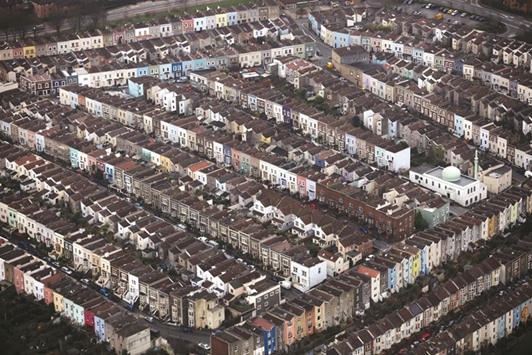Home financing resembling Islamic finance structures is increasingly becoming popular to solve the housing affordability crisis in Western countries, namely in the UK, US and Canada where housing cooperatives began using profit-and-risk-sharing schemes modelled after ijara or musharaka to help home buyers purchase properties without having to pay interest on conventional loans and without the need to cough up a deposit.
In the UK, the idea of a rent-to-own scheme technically based on the long-established Islamic contract of ijara came up last year when the Liberal Democrats party proposed such a model for less wealthy Londoners for whom home ownership is normally out of reach due to sky-high real estate prices. In cooperation with housing associations, such a scheme aims at giving people without a deposit the option of paying monthly instalments towards the cost of a home. After 30 years of such payments, the buyer would own the home outright.
This is exactly what an ijara contract provides, where one party purchases and leases out equipment required by a client for a rental fee. The duration of the rental and the fee are agreed in advance and ownership of the asset remains with the lessor.
In the case of a home, an Islamic bank or another intermediary purchases the property for a customer - or a housing cooperative builds the home and leases it to the client – who then pays a rental fee plus management charges until the total cost is paid off, at which point the ownership of the asset is transferred to the customer.
While the Liberal Democrats weren’t successful with their election campaign last year to provide 30,000 new homes a year in England after that scheme, the system – also known as rent-to-save, try-before-you-buy or intermediate market rent – has been popularised by a variety of home associations and home owner alliances for lower-income families, typically offering subsidised rents and purchase options through shared ownership after a five-year period without the need to pay a deposit.
There are, however, still further eligibility criteria which differ depending on the housing association the property is offered through. Priority is normally given to certain groups such as existing housing association tenants and council tenants, people that fit with local priorities, as well as first-time buyers.
In Canada, a country where Islamic finance is in a strong upwards trend, various cooperative frameworks have been established in the housing sector as well, particularly in Montreal and Toronto and some other major cities. They are providing home financing loans to members of their cooperatives in a Shariah-compliant manner.
For example, the Toronto-based Ansar Housing Cooperative uses a concept called “diminishing musharaka” to help home-buyers purchase properties without paying interest. Diminishing musharaka is used mostly when one party, who wants to own an asset, cannot afford to pay the full price and takes the assistance of financing from another party. Therefore, the scheme can be viewed as a form of shared ownership with a leasing sale-back arrangement, which makes it different from an interest-based mortgage. It allows an individual to buy a home jointly with a firm to which rent is owed. The individual then also gradually purchases the firm’s shares in the property – usually over a set period of time – until he or she eventually owns the entire home.
Another such cooperative is An-Nur Cooperative Company based in Toronto. It has offered interest-free financing for homebuyers and advice on Shariah-compliant investments for the past ten years and currently co-finances family housing in Mississauga and Scarborough, large lower-income suburbs of Toronto.
In the US, the Ijara Community Development Corp, or IjaraCDC, has been set up in Ann Arbor, Michigan, as a non-profit corporation and provides Shariah-compliant home financing for both US clients and customers in Canada where it has an office in Ottawa.
Other Islamic home finance cooperatives in the US are Guidance Residential in Kentucky, Ameen Housing Cooperative and Lariba American Finance House, both in California, Devon Bank in Chicago and University Islamic Financial, also in
Michigan.

A mosque, right, stands among rows of painted residential houses in this aerial photograph taken over Bristol, UK, on December 17, 2015. In the UK, the idea of a rent-to-own scheme technically based on the long-established Islamic contract of ijara came up last year when the Liberal Democrats party proposed such a model for less wealthy Londoners for whom home ownership is normally out of reach due to sky-high real estate prices.
